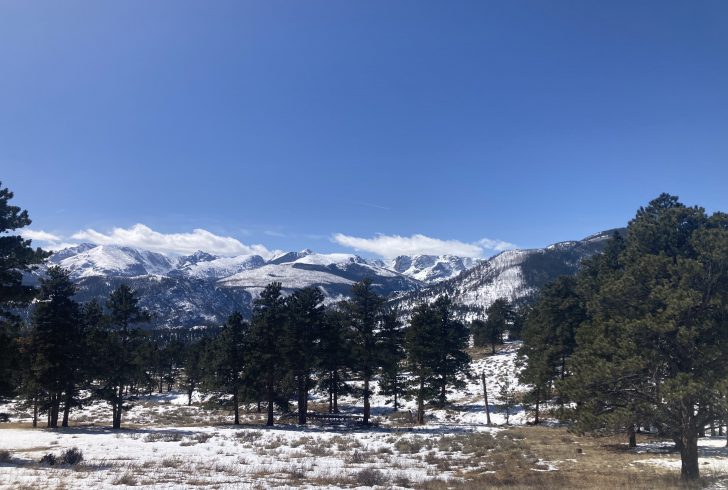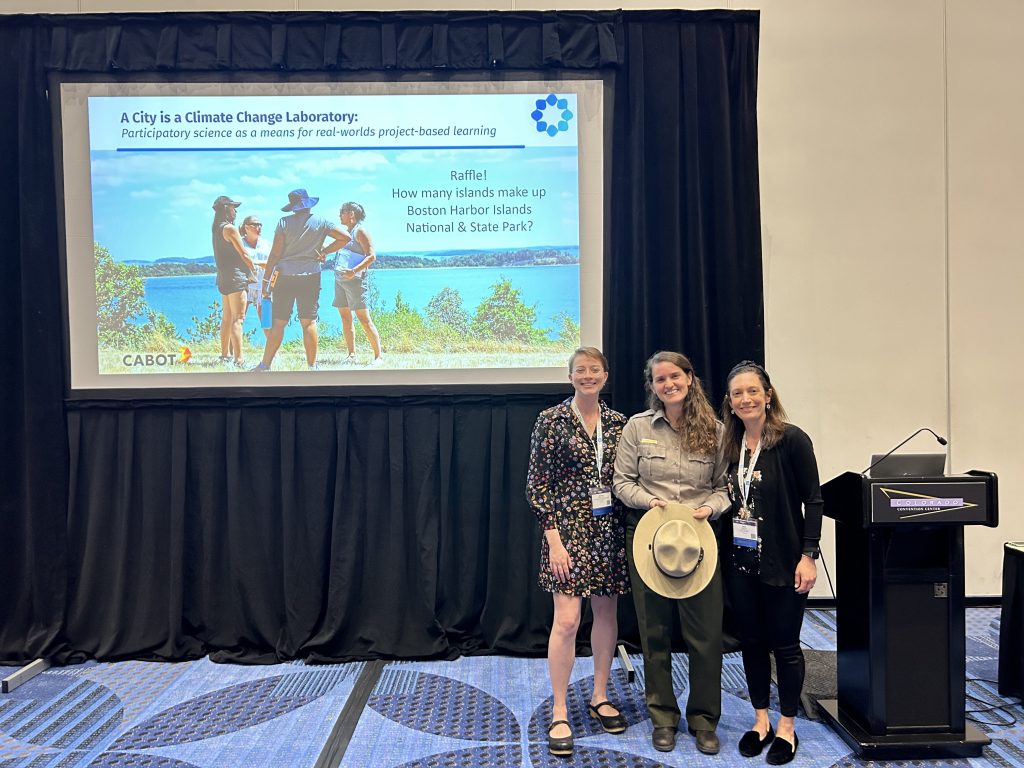Connecting & Refreshing at NSTA


In late March, Rebecca Shoer (Stone Living Lab), Elisabeth Colby (National Parks of Boston), and Holly Rosa (Boston Public Schools) joined thousands of science educators in Denver for the 2024 National Science Teaching Association Conference! The Lab team joined part of NSTA’s first “climate change” program track to present on the SLL Summer Teacher Institute.
Rebecca, Elisabeth, and Holly hosted a workshop for teachers centered on place-based learning and participatory science. The aim is to support educators in thinking about how they could use the principles developed for the SLL Summer Teacher Institute in their own classrooms – creating experiences for students that are authentic, real, and rigorous. Teachers from across the country shared ideas and strategies about how they could begin to incorporate these principles. For many STEM educators, especially those teaching about climate change, it is a tremendous challenge to teach these large and overarching topics to students, without it feeling irrelevant or overwhelming. By centering lessons in place locally, and using authentic scientific protocols alongside community partners, students learn real skills and take action for their own communities.
One lucky participant won a copy of The Field Guide to Citizen Science by correctly guessing how many islands are in Boston Harbor National and State Park!

(Left to right) Rebecca Shoer, Elisabeth Colby, and Holly Rosa at their workshop session.
In addition to the workshop, the SLL team was also able to learn from and connect with fellow organizations nationwide. A particular highlight was trying out climate data art activities hosted by the CU Science Discovery Center. Look out for some of these activities at our own Climate Cart this summer!
The NSTA conference is an incredible way to recharge and reinvigorate programming for educators across the country, and the Lab is no exception. With our new skills and growing network of fellow science educators, we can’t wait to see what this year’s Institute will bring!